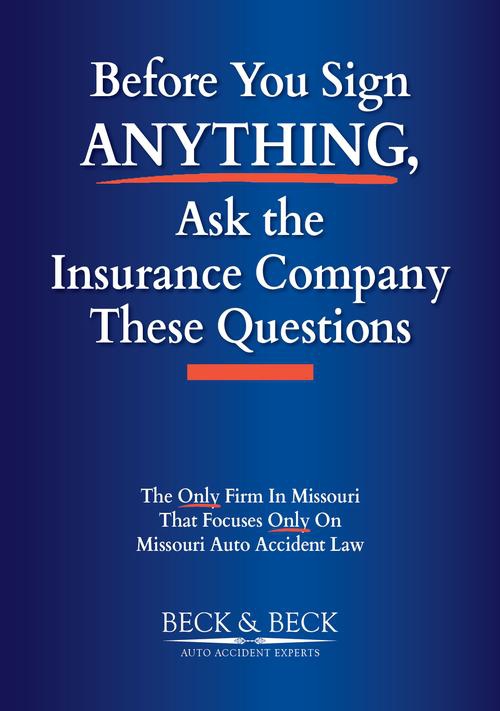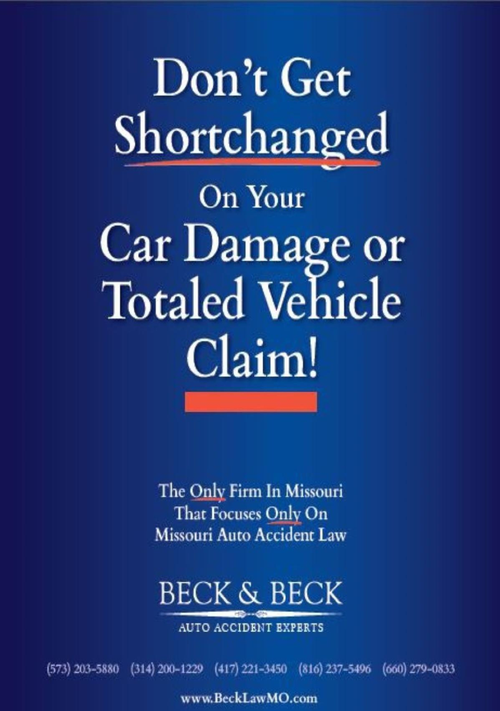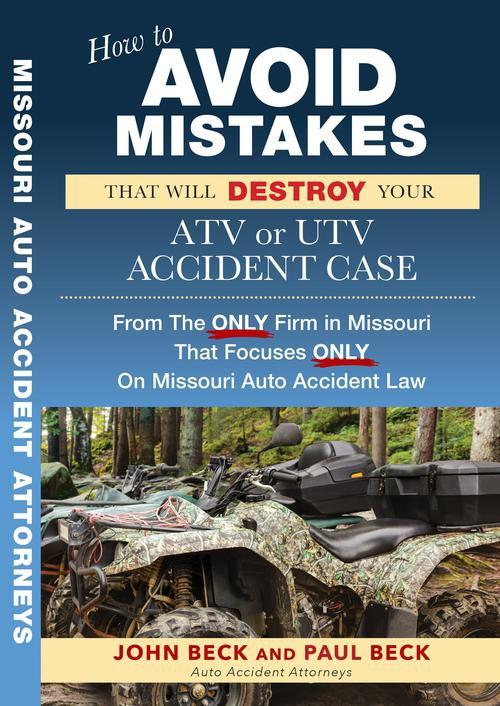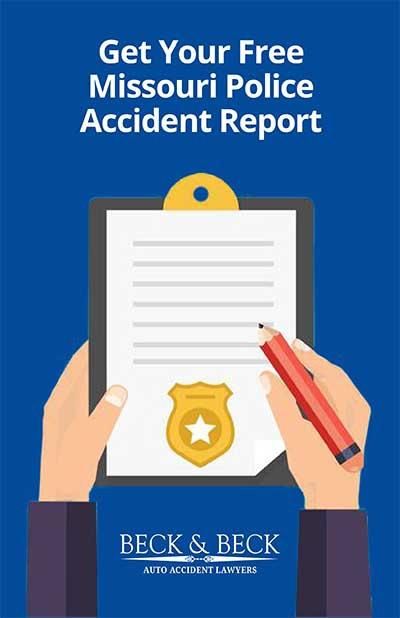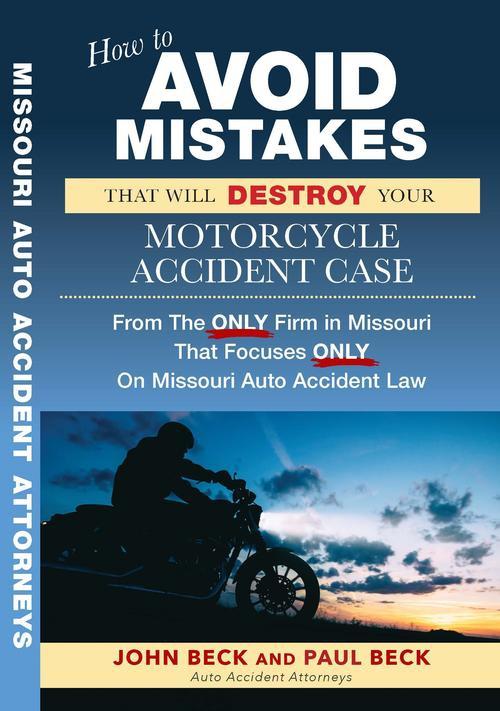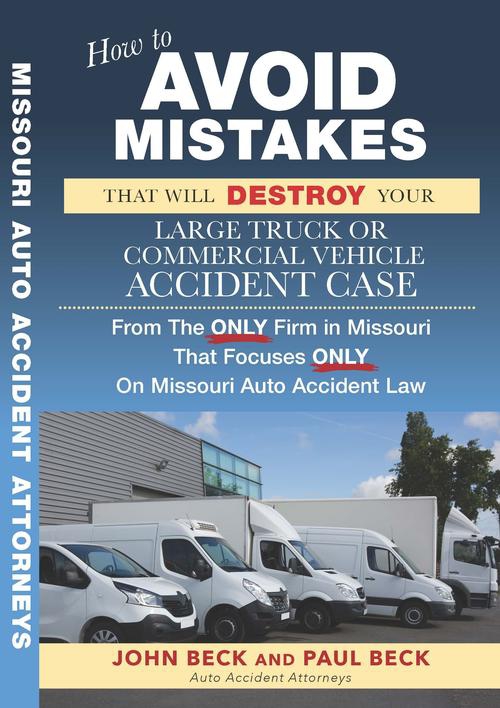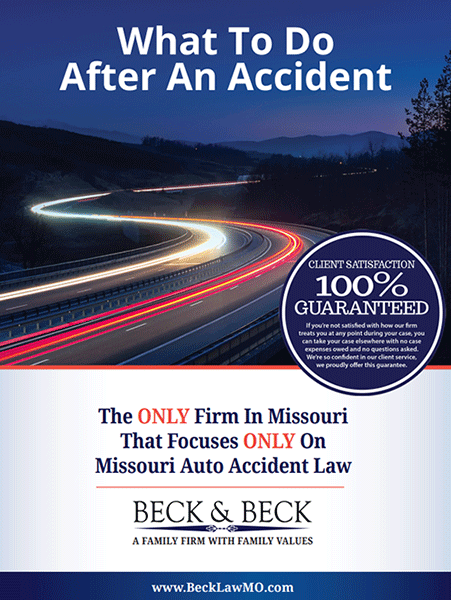In Missouri, an insurance company considers your vehicle a total loss if the repair costs plus its salvage value meet or exceed 80% of its actual cash value just before the accident. This calculation generally applies to vehicles under six model years old.
For older cars, insurers can decide on their own method to determine a total loss. The 80% threshold comes from Missouri Revised Statute § 301.010(51)(a), which sets the standard all insurance companies must follow.
For instance, if your car is relatively new and repairs cost nearly as much as its market value before the crash, it may be declared a total loss. If $16,500 is needed for repairs and salvage, that exceeds 80% of a $20,000 market value, or $16,000.
Actual cash value means what your car was worth just before the accident happened. Fair market value is used rather than the purchase price or loan balance, with age, mileage, and overall condition all considered in the calculation.
How the 80 Percent Rule Works
Insurance carriers use a set formula to see if a vehicle meets Missouri’s total loss standard. The rule says: (Repair Costs + Salvage Value) must equal or go beyond 80% of the car’s actual cash value.
Salvage value is the price a salvage yard would offer for the damaged car to resell parts. If you decide to keep the vehicle after it’s totaled, that amount is deducted from your payout.
Missouri law leaves certain expenses out of the 80% calculation. These exclusions can determine whether the car gets fixed or written off completely.
Items left out include:
• Airbag replacement: Deployed airbag costs don’t count
• Tire replacement: New tires aren’t added to the total
• Sound system repairs: Stereo damage is excluded
• Hail damage repairs: Cosmetic hail damage is ignored
• Sales tax on parts: Taxes on materials aren’t figured in
For example, say your car is worth $15,000 and repairs total $12,500. On paper, that’s over the $12,000 threshold (80% of $15,000). But if $1,000 of the estimate is airbag replacement, the counted cost is $11,500, meaning the car isn’t considered a total loss.
ACV and Total Loss Value in Missouri
When a car is labeled a total loss, the payout from the insurer is based on its actual cash value. That amount shows what the car could have been worth on the open market right before the crash.
The payment isn’t based on what you originally spent, how much you still owe, or what a replacement would cost.
It’s determined by the car’s market value in the shape it was in just before the accident.
ACV Factors That Affect the Payout
Insurance adjusters look at a range of details when setting the actual cash value. Knowing these factors makes it easier to judge whether their offer is accurate.
Key considerations include:
• Vehicle details: Year, make, model, trim, and engine type
• Mileage and condition: How much it has been driven and its overall shape
• Market comparisons: Sale prices of similar cars in your area
• Added features: Special equipment, wheels, or package upgrades
• Service history: Records of upkeep and major recent work
Missouri Exclusions In Repair Cost
Missouri has certain exclusions that can shift how the 80% rule applies. When your estimate is close to the threshold, leaving out these costs might keep the car repairable instead of calling it a total loss.
Say your repair bill shows $2,000 for airbags and $800 for tires. That $2,800 won’t be used in the calculation. In some cases, this is enough to keep the car on the road instead of forcing you into buying another one.
Evidence That Increases ACV
If the insurer gives your car a low value, you can push back by showing proof it’s worth more. Detailed proof can make the insurer raise their settlement amount.
Useful proof can include:
• Maintenance records: Regular oil changes, tune-ups, or major repairs
• Upgrade receipts: New tires, brake work, transmission, or engine fixes
• Pre-accident photos: Showing the car was in strong condition
• Local listings: Comparable vehicles selling for higher amounts
• Extra features: Aftermarket wheels, premium sound, or performance upgrades
Keeping A Totaled Car And Title Rules
If your car is totaled, you don’t have to give it up. You can keep it, but the insurance company will lower your payout by the salvage amount. In plain terms, you’ll get less money, but the car stays with you.
People usually do this if they want to fix it themselves, hang onto it for parts, or simply don’t want to let it go.
Salvage Title Steps In Missouri
Once you decide to keep the car, there are a few steps you can’t skip. A salvage vehicle isn’t allowed on public roads until it’s been rebuilt and cleared.
Here’s what you’ll need to do:
- Let the insurance company know you’re keeping it
- Accept the lower settlement (value minus salvage)
- Apply for a salvage title with the Missouri Department of Revenue
- Keep it parked until repairs are finished
You’ll also need to fill out Form DOR-108 and pay the fee. The salvage title stays on the record so anyone down the road knows the history.
Rebuilt Title And MSHP Inspection
After repairs, the car has to go through a Missouri State Highway Patrol inspection. They’ll check that the work is sound and the car meets safety standards.
Bring receipts for parts and labor and photos of the repairs. If it passes, you can get a rebuilt title, which lets you register and drive it again.
Insurance On Rebuilt Vehicles
Insurance can be tricky with these cars. Most companies only offer liability, which means you’re covered if you cause damage but not for your own car.
Some do offer full coverage, but the premiums are usually higher. Even if the car’s fixed, insurers treat rebuilt vehicles as riskier.
Who Pays After A Total Loss In Missouri
Who covers your totaled car depends on who caused the wreck and what coverage you carry. At Beck & Beck Missouri Car Accident Lawyers, we walk clients through the different ways payment can work after a total loss.
At-Fault, Collision, And UMPD Paths
There are three main ways you can get compensated. Each comes with its own pros and cons.
At-fault driver’s insurance: You can file against the other driver’s property damage coverage. No deductible on your end, but it can drag on if their company argues fault or delays.
Your collision coverage: You go through your own insurer. Payment usually comes quicker, no matter who caused it. You’ll have to pay your deductible first, though your company might get it back later.
Uninsured motorist property damage: This applies when the at-fault driver doesn’t have insurance. The limits are often low, and it doesn’t usually apply to hit-and-run cases.
Loan Payoff And GAP Insurance
If you still owe on the car, the loan doesn’t go away. The payout may not match what you owe, leaving you with a shortfall. GAP insurance covers that difference. Without it, you’re responsible for the leftover balance yourself.
Sales Tax, Title, And Fees
Missouri law doesn’t make insurers pay sales tax, title fees, or registration costs on a replacement. Some companies add them in as part of a settlement anyway. Always ask your adjuster. Even though it’s not required, a few insurers include it to keep customers satisfied.
Rental And Loss Of Use
Rental reimbursement can cover a temporary car while your claim is pending. Policies set daily and total limits, like $30 per day or $900 overall. That coverage often ends once the claim is paid, so check your policy and ask your adjuster. After settlement, the expectation is you’ll use your payout for another vehicle.
How To Dispute A Low Total Loss Offer
Insurance companies often start with a low number to limit what they pay out. You don’t have to accept it. You have the right to push back and work toward a fairer amount.
As a family firm, we’ve seen these tactics many times and know how to challenge them on behalf of our clients.
Appraisal Clause And Independent Appraisals
Most car insurance policies give you the option to request an independent appraisal if you disagree with their number. Hiring your own appraiser provides an unbiased estimate of what your car was actually worth.
If their findings show a higher value, it gives you strong grounds to push for a better settlement. While an appraisal usually costs a few hundred dollars, it can make sense when thousands are at stake.
File A DCI Complaint In Missouri
When an insurance company delays, avoids providing records, or offers a figure well below market value, you can file a complaint with the Missouri Department of Commerce and Insurance. The DCI reviews these complaints and makes sure companies follow state rules.
This step can create pressure on an insurer to handle your claim fairly and keep the process moving.
When Litigation Makes Sense
There are times when no amount of evidence will move the insurance company.
If they refuse to deal fairly or act in bad faith, working with our experienced Missouri auto accident attorneys and filing a lawsuit may be the only option.
A lawsuit can help recover the amount you should have been paid and hold the insurer responsible for their actions. We provide free consultations to go over your situation and explain possible next steps.
FAQs About Missouri Total Loss Laws
How Long Does A Total Loss Claim Take In Missouri?
How long a total loss claim takes often comes down to the specifics of your case and how quickly you and the insurer trade information. Some claims move fast, while others drag if there are delays or disputes over value.
Can I Force My Insurance Company To Repair Instead Of Total My Car?
No. If your car meets Missouri’s 80% total loss rule, the company cannot choose repair over totaling. Once the numbers cross that threshold, the law requires it to be treated as a total loss for safety and title purposes.
Do Insurance Companies Pay Sales Tax On Replacement Vehicles In Missouri?
Insurance companies in Missouri aren’t required to cover sales tax or title fees when you replace your car. A few may choose to include them, but most do not.
What Is Missouri’s Total Loss Sales Tax Credit?
If your car is totaled, Missouri lets you use a sales tax credit when buying a replacement vehicle. To claim it, you’ll need paperwork from your insurer to give to the Department of Revenue.
How Do Total Loss Rules Work For Cars Older Than Six Years?
The 80% total loss rule applies only to cars newer than six model years. Older vehicles don’t follow that formula. Instead, insurers rely on their own standards to decide whether repairs make sense financially.
Can I Claim Diminished Value After My Car Is Totaled?
No. A diminished value claim applies only when a car is repaired but worth less because of its accident record. Once a vehicle is declared a total loss, that option isn’t available.
Related Articles
Cost of the average car accident in the U.S. in 2025

